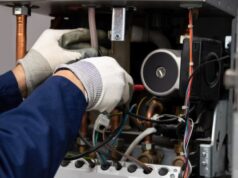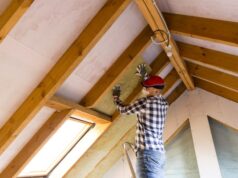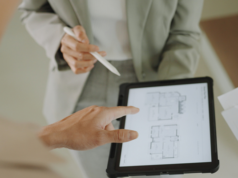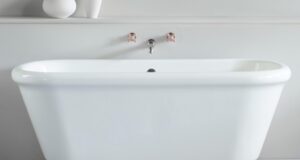
Automated security systems are normally an integral part of a home automation system. Find out how they work, and what sorts of technologies they employ to keep your home and family safe.

One of the many advantages of a well planned home automation system is that it can vastly improve the security in your home. Sensors and detection systems can let you know when people are entering or exiting your house, or if it’s being broken into. Controls can allow you to remotely allow or prevent access, or to tell who’s around (even when you’re not).
How can home automation increase my security?
Home automation’s a pretty broad term, and there are countless different ways that any number of technologies can be tied together to improve security around your home.
Access controls, for example, can help to ensure that only the right people can come and go from your house – and that you know who they are and when they’ve entered and left. Intrusion detection systems can use any number of different sensor systems to figure out who’s where, and whether or not people are trying to enter your home. And alarm systems can either set off a deterrent alarm, or alert the authorities or a security team to the fact that there’s a problem.
What types of hardware does home automation use?
An automated security system can be as simple as a DIY exterior light attached to a motion sensor or a remotely controlled gate, all the way up to a fully integrated system using a range of different types of high tech sensors, timers and controls segmented into zones, recorded and monitored offsite – perhaps even with an independently connected panic room. The amount and type of hardware you use will come down to what you need to achieve, and how much you’re willing to spend for it.
Below is a basic rundown of a few of the more fundamental types of hardware used in automated security systems:
Sensors
Sensors are used to detect changes in the environment around your house. For security purposes, they’re normally used to detect when there’s something wrong – or more specifically, when someone’s either gained entry or is attempting to get into your house. Sensors can be used to detect things like:
- Movement (occupancy sensors, passive infrared / ultrasonic)
- Light (photoresistors etc.)
- Heat (temperature sensors)
- Windows or doors opening / vibration (contact sensors, reed switches)
- Pressure under a floor (pressure transducers, strain gauges etc.)
- Noise
Cameras are a type of complex sensor too – they can be activated when motion is detected to either record or transmit a picture or video feed. Sensors can be used to initiate some sort of reaction to an unwanted intruder, but they can also improve security by doing things like helping to turn on lights at the front of your home or automatically opening your garage door or front gates when you arrive home.
Access control
Whether it’s your front door or the back gate, you can set up access to your home to be approved by yourself. Some systems will operate via a remote control, while others can be accessed by a code, or even ask for fingerprint or other biometric recognition (like retinal scans, facial or voice recognition, for example).
Access controls can be used to trigger other parts of your home automation system too. When you enter the house, for example, the system can automatically switch on the right lights and climate control systems for you – or lock your doors and arm certain intrusion sensors when you go to bed.
Alarms and response systems
When a sensor’s detected something wrong, it should trigger some kind of reaction. This can be as simple as a light going on (which in itself is a fantastic deterrent), or it can be a sequence of reactions including sending a live video feed to wherever it’s needed, or sending information to a manned security service somewhere.
How secure is my house when I’m not there?
Great technology’s fairly inexpensive these days, and without too much effort you can arrange access your home and security systems even when you’re not there, from an interface on a web page, tablet, or smartphone app. Things like pan-tilt-zoom (PTZ) cameras and push notifications can let you ‘patrol’ your house, and keep an eye on things from anywhere in the world, in realtime.
The purpose of ‘automation’ is to ensure that your home reacts automatically when it needs to – and there’s a great amount of choice in how you choose to set it all up.





